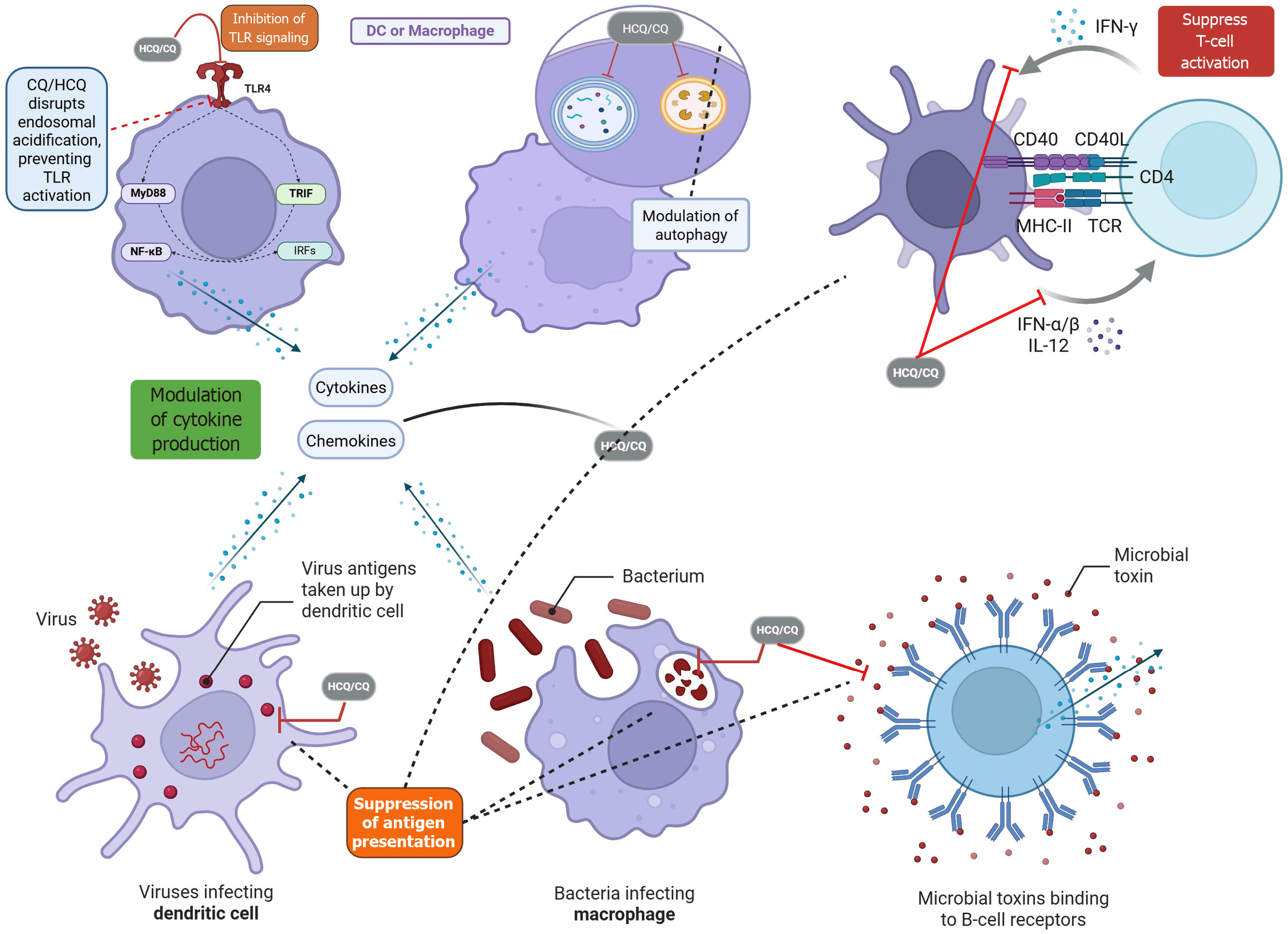Copyright
©The Author(s) 2025.
World J Biol Chem. Jun 5, 2025; 16(2): 107042
Published online Jun 5, 2025. doi: 10.4331/wjbc.v16.i2.107042
Published online Jun 5, 2025. doi: 10.4331/wjbc.v16.i2.107042
Figure 1 Immunomodulatory effects of chloroquine and hydroxychloroquine on key immune cells.
This figure illustrates the impact of chloroquine (CQ) and hydroxychloroquine (HCQ) on various immune cell types, including dendritic cells (DCs), macrophages, T cells, and B cells. CQ and HCQ modulate DCs by disruption of Toll-like receptor (TLR) signaling (TLR4, TLR9) and inhibition of antigen presentation via lysosomal interference, reducing pro-inflammatory cytokine production (tumor necrosis factor-alpha, interleukin-12). In Macrophages, they suppress TLR signaling and phagocytosis, and promote of M2 anti-inflammatory polarization, and modulation of cytokine release. In T cells, they inhibit autoreactive T cell activation via impaired antigen presentation, suppression of Th1/Th17 subsets, and potential enhancement of regulatory T cells (Tregs), and in B cells, the act via reduction in autoantibody production by interfering with B cell activation and plasma cell differentiation.
- Citation: Al-Hamadani M, Darweesh M, Mohammadi S, Al-Harrasi A. Chloroquine and hydroxychloroquine: Immunomodulatory effects in autoimmune diseases. World J Biol Chem 2025; 16(2): 107042
- URL: https://www.wjgnet.com/1949-8454/full/v16/i2/107042.htm
- DOI: https://dx.doi.org/10.4331/wjbc.v16.i2.107042









